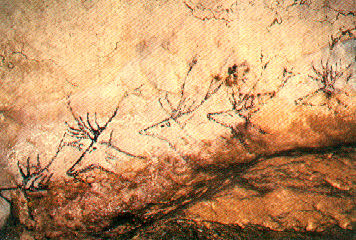
“The world is too remote from ordinary experience to be merely imagined.”
p. 49.

Edward O. Wilson (NYC: Vintage, 1999).
“We already intuitively think of these four domains as closely connected, so that rational inquiry in one informs reasoning in the other three. Yet undeniably each stands apart in the contemporary academic mind. Each has its own practitioners, language, modes of analysis and standards of validation. The result is confusion, and confusion was correctly identified by Francis Bacon four centuries ago as the most fatal of errors, which ‘occurs wherever argument or interference passes from one world of experience to another’.”
p. 9-10.
"Think of two intersecting lines forming a cross, and picture the four quadrants thus created. Label one quadrant environmental policy, the next ethics, the next biology, and the final one social science."
| environmental policy | ethics |
|---|---|
| biology | social science |
“As we cross the circles inward toward the point at which the quadrants meet, we find
ourselves in an increasingly unstable and disorienting region. The ring closest to the intersection where most real world problems exist, is one in which fundamental analysis is most needed.
"Yet virtually no maps exist. Few concepts and words serve to guide us.
"Only in imagination can we travel clockwise from the recognition of environmental problems and the need for soundly based policy; to the selection of solutions based on moral reasoning; to the biological foundations of that reasoning; to a grasp of the social institutions as the products of biology, environment, and history. And thence back to environmental policy.”
p. 9.
p. 10.
"Trust in consilience is the foundation of the natural sciences.
For the material world at least, the momentum is overwhelmingly toward conceptual unity. Disciplinary boundaries within the natural sciences are disappearing, to be replaced by shifting hybrid domains in which consilience is implicit. These domains reach across many levels of complexity, from chemical physics and physical chemistry to molecular genetics, chemical ecology, and ecological genetics. None of the new specialties is considered more than a focus of research. Each is an industry of fresh ideas and advancing technology."
![]() " Consilience is the key to unification. I prefer this word over "coherence" because its rarity has preserved its precision, whereas coherence has several possible meanings, only one of which is consilience.
" Consilience is the key to unification. I prefer this word over "coherence" because its rarity has preserved its precision, whereas coherence has several possible meanings, only one of which is consilience.
William Whewell, in his 1840 synthesis The Philosophy of the Inductive Sciences, was the first to speak of consilience, literally a "jumping together" of knowledge by the linking of facts and fact-based theory across disciplines to create a common groundwork of explanation."
"a clear view of the world as it really is, not as seen through the lens of ideologies and religious dogmas or commanded by myopic response to immediate need."
" Yet the vast majority of our political leaders are trained exclusively in the social sciences and humanities, and have little or no knowledge of the natural sciences. The same is true of the public intellectuals, the columnists, the media interrogators, and think-tank gurus. The best of their analyses are careful and responsible, and sometimes correct, but the substantive base of their wisdom is fragmented and lopsided.
A balanced perspective cannot be acquired by studying disciplines in pieces but through pursuit of the consilience among them. Such unification will come hard. But I think it is inevitable. Intellectually it rings true, and it gratifies impulses that rise from the admirable side of human nature. To the extent that the gaps between the great branches of learning can be narrowed, diversity and depth of knowledge will increase.
They will do so because of, not despite, the underlying cohesion achieved. The enterprise is important for yet another reason: It gives ultimate purpose to intellect. It promises that order, not chaos, lies beyond the horizon."
Goal
"Every college student should be able to answer the following question: What is the relation
between science and the humanities, and how is it important for human welfare?"
"Every public intellectual and political leader should be able to answer that question as well. Already half the legislation coming before the United States Congress contains important scientific and technological components. Most of the issues that vex humanity daily—ethnic
conflict, arms escalation, overpopulation, abortion, environment, endemic poverty, to cite several most persistently before us—cannot be solved without integrating knowledge from the natural sciences with that of the social sciences and humanities."

E. O. Wilson | Future of life| Biological Diversity of life

 Consilience: The Unity of Knowledge
Consilience: The Unity of Knowledge